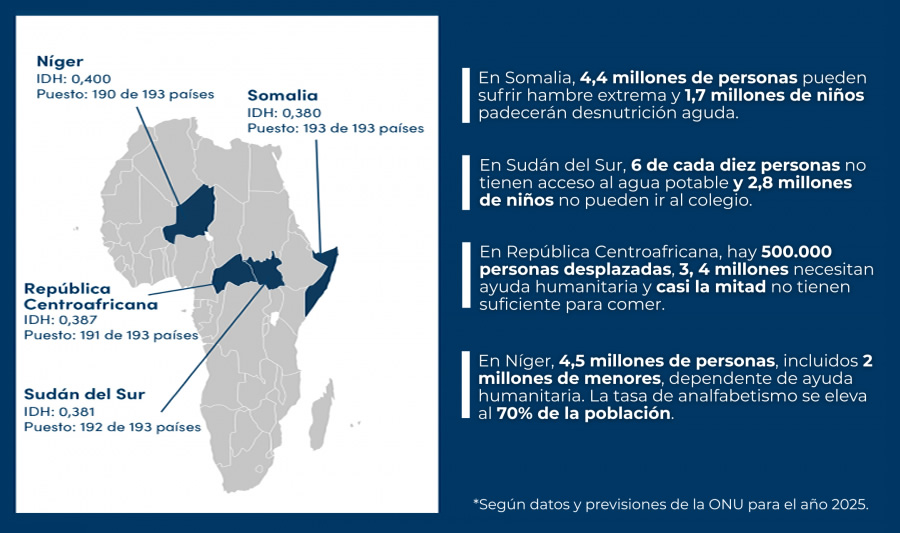
Somalia, South Sudan, Central African Republic and Niger top the list of the world's poorest countries. Paradoxically, they possess abundant natural resources that fail to translate into well-being for their people. Political instability and the absence of strong institutions keep millions of people trapped in chronic poverty.
The International Monetary Fund forecasts 4% growth for Africa in 2025, above the world average. However, this macroeconomic upturn will have little impact on human development levels. According to the United Nations Development Programme, the gap between economic potential and social reality is still abysmal in the countries that lead the poverty ranking.
In Somalia, more than four million people are at risk of extreme hunger. The country, devastated by decades of civil war, faces historic direct elections in September, the first in more than half a century, while resistance from local leaders opposed to democratic reforms persists.
South Sudan, independent since 2011, has oil, fertile land and abundant livestock. Yet political violence has left half the population food insecure and millions without access to basic services. In the Central African Republic, territorial control by armed groups and recurrent violence displaces hundreds of thousands, while poverty and food insecurity affect nearly half of the population.
Niger, rich in uranium, gold and oil, suffers from extreme poverty aggravated by successive coups d'état. With over 70% of illiteracy and a heavy dependence on humanitarian aid, the lack of the rule of law limits any possibility of progress. Political change and democratic governance are the prerequisites for reversing the situation.
The experience of African countries with solid institutions, such as Botswana and Cape Verde, shows that democracy boosts development and reduces poverty. Meanwhile, organisations such as Manos Unidas work on the ground in 33 African countries, supporting projects in education, health, water, food and human rights so that prosperity ceases to be a privilege and becomes a shared right.
Source: manosunidas.org
